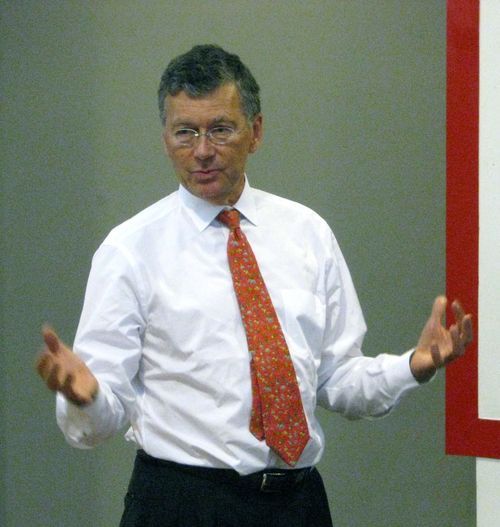 This interview was originally published in the magazine Periodistas (Journalists), a publication of the Federation of Journalist Associations of Spain (FAPE), and is translated below. (Here is the original in Spanish.)
This interview was originally published in the magazine Periodistas (Journalists), a publication of the Federation of Journalist Associations of Spain (FAPE), and is translated below. (Here is the original in Spanish.) By Marta Molina, Editor, Periodistas
James Breiner is, along with guru Jeff Jarvis, one of the most consulted U.S. experts on new digital media. A tireless promoter of entrepreneurial journalism and new business models, he maintains that the days of the big media monopolies have come to an end.
Q. Why should someone launch a media project when the industry is falling apart?
Breiner: Journalists complain that they have lost control of their work to the business interests of the publishers. They would like to make decisions more and take orders less. This is actually the best time to act. The weakness of big media creates opportunities for upstarts. Big media are abandoning entire categories of coverage that readers appreciate, and new media can take advantage of that to fill the gaps. It's possible now to launch a digital publication with a small investment. Generating revenue is tricky, but the opportunities are there. There are some who get started in their free time while they have a steady income. If you should find yourself unemployed, take advantage of the time to develop the project you always dreamed about.
Q. The Spanish media industry has done away with more than 5,000 jobs in recent years, however we are light years behind the U.S. in entrepreneurial culture.
Breiner: When confronted with these scary numbers one could conclude that there is no hope for the profession in Spain. I don't want to minimize the current crisis, but a recession also creates opportunities. There is less competition, competitors are weak or nearing bankruptcy. True, the print industry is near the point of economic collapse, but some will discover the basis of a new order in digital media. It could be you. Go for it!



